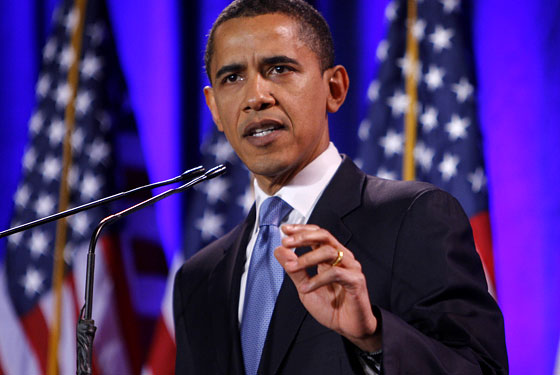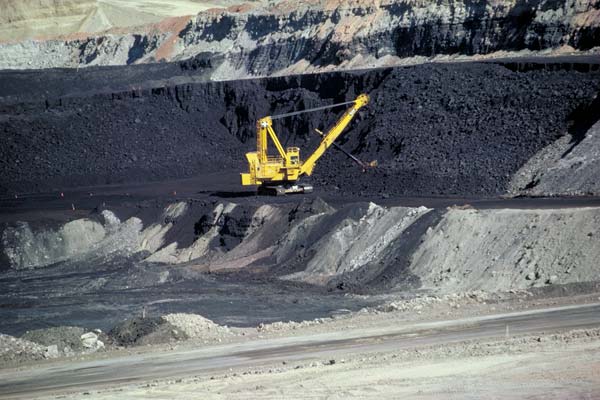Today, the U.S. Environmental Protection Agency is expected to announce new regulations to cut the carbon emissions of more than 600 existing coal-fired electric power plants.
And many analysts suggest that this regulation--which will likely spark a major political battle--will be the most important environmental legacy of the Obama Administration.
The regulation would propose cutting carbon emissions from coal plants 30 percent from 2005 levels by 2030, sources tell The Washington Post and The New York Times.

Barack Obama
If the regulation survives, it could close hundreds of coal plants across the country.
The electric-utility industry already faces growing disruption from the impact of distributed renewable power sources.
A study by the Edison Electric Institute concluded last year that its century-old business model would not survive the advent of cheap solar and wind power.
Now, the industry faces billions of dollars of costs to update or replace its coal-fired generation capacity.
The effect of the EPA regulations could be to reduce the percentage of U.S. electricity generated from coal--which is already falling--to negligible amounts.
DON'T MISS: Will Solar Panels Destroy Electric Utilities' Business Model? Yes, They Say
Under the proposed regulations, each state will have great latitude in reducing its overall carbon emission level.Investments in renewable generation or participation in regional "cap and trade" exchanges would all qualify if the net effect were to reduce each state's carbon footprint from generating electricity.
The plan represents President Barack Obama's second attempt at a comprehensive plan to address climate change.

Coal Mine
Analysts suggest that its impact on U.S. carbon emissions will far outweigh that of the hotly debated Keystone XL pipeline, still pending approval, that would bring Canadian tar-sands oil into the U.S.
Obama's ambitious first-term bill to reduce U.S. carbon emissions, which would have established a national carbon cap-and-trade program, was killed by Congress.
With the current Congressional gridlock--and notable numbers of Republican Congressmen on record saying they do not believe the accepted science of climate change--any meaningful action on limiting carbon emissions had to come through a different channel.
ALSO SEE: Keystone Pipeline Fight: Insignificant 'Sideshow' To EPA Power-Plant Limits?
The proposed EPA regulations stem instead from the president's executive authority under the 1970 Clean Air Act.
With mid-term elections coming in November, and the least productive Congress in many decades now seated--as measured by legislation passed--today's EPA regulations may be as fiercely debated as any recent legislation has been.
Whether the regulations stand will directly affect the global standing of the U.S. to influence meaningful action on limited carbon emissions throughout the world.
It promises to be a battle royal.
_______________________________________________













